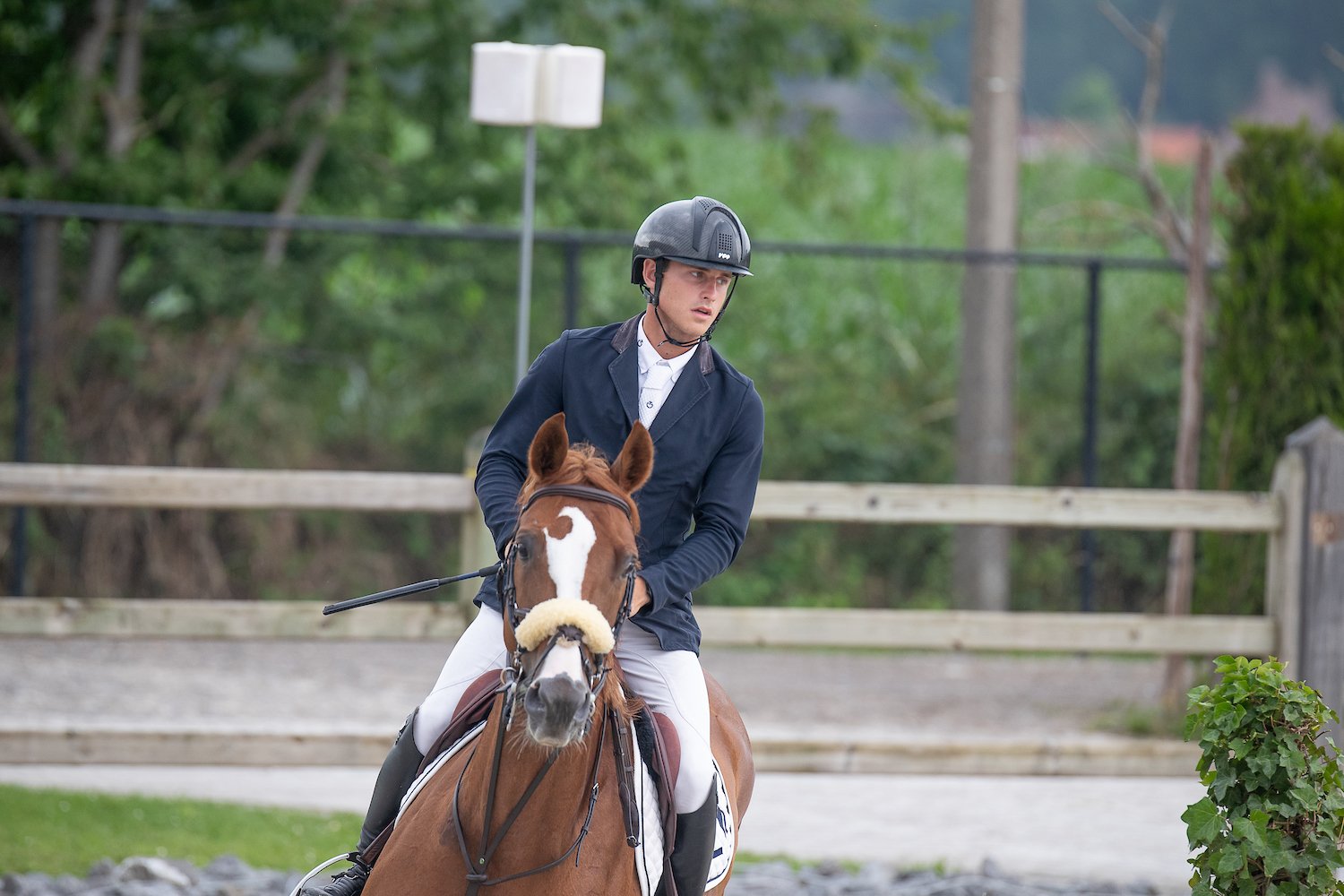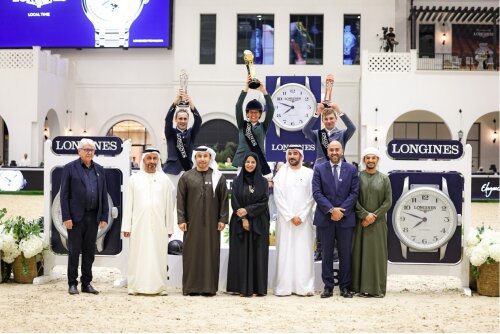July was a remarkable month for 22-year-old T1 talent Tim Prouvé. It began with his victory in the CSI 3* Grand Prix of Maubeuge. Just two weeks later, he closely followed the European Championships in La Coruna, where Abdel Saïd competed with Bonne Amie, a horse trained by Tim. “And sold – that’s our reality,” he says matter-of-factly.
Yet Tim still harbors sporting ambitions: “I was 19 when Bonne Amie left. Now, three years later, our stable Provahof is increasingly leaning toward sport.” His father Bert, who joins the conversation, agrees: “Sport should be the goal for every rider, though you also have to be realistic. At the end of the month, the bills need to be paid. I remind my sons of that every day. Everyone finds their own path, and if you’re good, people will find you. You have to earn opportunities, and to create them, you need to invest – which is why I’m now holding off on selling too quickly. Thanks to that, Simon and Tim have already given Provahof a sporting upgrade.”
Tim would’ve preferred to keep European Championship horse Bonne Amie longer, but it wasn’t up to him: “We only partly owned Bonne Amie. You don’t get the final say. That wasn’t easy, but it’s part of being a rider – I grew up with that. It’s tough, yes. I was 19 and not where I am today. Now, the bar is higher. I believe Mon Ami is Bonne Amie’s successor, and the plan is to keep him for the sport. That’s how I can realize my ambitions. My parents’ Provahof has evolved. We’re not just a training and sales stable. We have sporting goals, which means we’re holding onto horses longer to compete with them at higher levels.”
Rather a Quad than a Horse
Today, Tim is driven, but in the past, he preferred riding a quad to a horse: “We can be brief about my pony years – we got off to a bad start with the wrong ponies.” Only when horses entered the picture did he get the taste for it.
“My dad often galloped in the woods. I was six or seven, ran into the forest with my arms up. He rode Un Ami, picked me up, and sat me in front of him in the saddle. I loved it. When a log crossed our path, we jumped over it. The first time was scary, the second time fun. It wasn’t real riding – more like tagging along.”
When Tim and his brother Simon went into the woods themselves, it was on quads. “One day dad brought home a Shetland pony named Plopke. But at ten years old, a quad is way more fun than a pony. I’d lead him around on foot, and we’d let him roam the garden – much to our parents’ annoyance. We had fun with Plopke, but we didn’t see him as a riding pony. We had other ways of getting around. At Provahof, there were always lessons going on, the bar was lively – we grew up among it all without really noticing the horses. It was fun around the stables, even without riding.”
Three Years Without Riding
“Later I got Eagle, a bigger pony. I jumped with him, but he refused a lot, and I lost interest. I didn’t ride for three years. Until dad brought home a nice horse – really a sweet one. I was 12 and eager again. I rode my first competition with her. I thought I was still on my quad – I remember just galloping fast through the course. I didn’t see any distances. But over three years, I progressed from 1.10m to 1.40m courses. All thanks to dad. It was all very relaxed, no pressure. Fun came first. He knew my background.”
Skip Steps, Pay the Price
Bert: “It’s my job to help my sons avoid the mistakes I made. I wanted too much back then without realizing I lacked the knowledge. Wanting but not being able. I should’ve been more strict about horse quality. One thing that stuck with me was what Eric Wauters once told me: show jumping is an honest sport. You climb the ladder, but skip a few rungs and you’ll fall back down. You might force a result, but skip steps and you’ll be punished. I confess, I skipped steps in the past. I want to prevent that for Tim. He needs to understand and connect with his horses. Winning a lot doesn’t define a good rider. A good rider gives their horse every chance to reach its potential. The result in the arena is a reward for the work – but winning shouldn’t be the main goal. Learning to ride well – that’s the foundation. And you can only do that if you love horses. Then it’s enjoyable for both rider and horse. I’ve also noticed that stress lessens as your skills grow. Jumping a 1-meter course can be stressful if you fear your horse might stop and throw you off. A 1.60m course can feel relaxed if you trust your horse. When we talk about talent, it’s about a natural eye for distance. But drive is more important than talent, because in our sport, you deal with disappointment more often than with victory.”
When Bert Prouvé was Tim’s age, he wanted nothing more than to ride: “I didn’t have big dreams, let alone about top-level sport. In my generation, you rode after work. Riding professionally was not done. But I was driven. My mother saw that and supported me. After my first junior competitions, I was invited to national training camps – and realized I wasn’t very good. Everyone talked about ‘foulées’ (strides), and I had no clue. I just stepped out the distances between combination jumps because everyone else did. Only later I realized that’s one of the least important parts. I was eager to learn and was given horses to ride from left and right. I went to college but spent more time in stallion catalogs than textbooks. My parents thought I’d end up doing the bookkeeping for the family business – that was their secret plan. But I had more ambition in horses.”
“That journey began by breaking horses under saddle – western style. After military service, I bought what is now Provahof – a riding school with many lessons and a bar. And it’s still like that. After starting horses, I competed a lot in the young horse cycle. A clear round earned 1,000 francs (25 euros). I asked the owner for 800 francs to ride their horse – if we jumped clear, they paid nothing and I kept the 1,000. Often owners would bring the horse once a week for me to ride and then I'd see them again at shows. When I turned professional, I had no real plan. I wanted to ride – and that worked – and I gave a lot of lessons on the side. I remember jumping the Calgary Grand Prix on a Sunday and teaching beginners on Monday. That’s how grounded it was.”
“Sport must be every rider’s ambition, but you also have to be realistic. At the end of the month, the bills need to be paid. I remind my sons of that every day. In a few years, we’ll know where they stand. They’re young, driven, they have the horses and the facilities. Grab the reins with both hands and go for it. Pieter Devos started in his family’s fruit business, Niels Bruynseels in his grandparents’ riding school. Everyone starts somewhere.”



